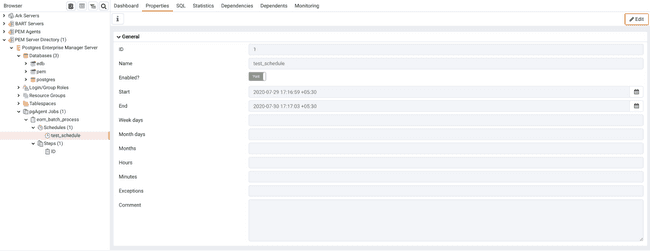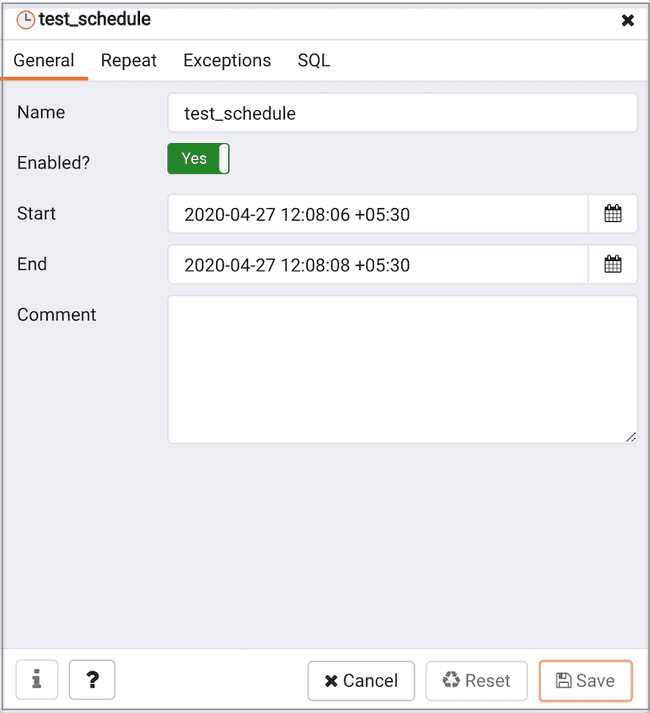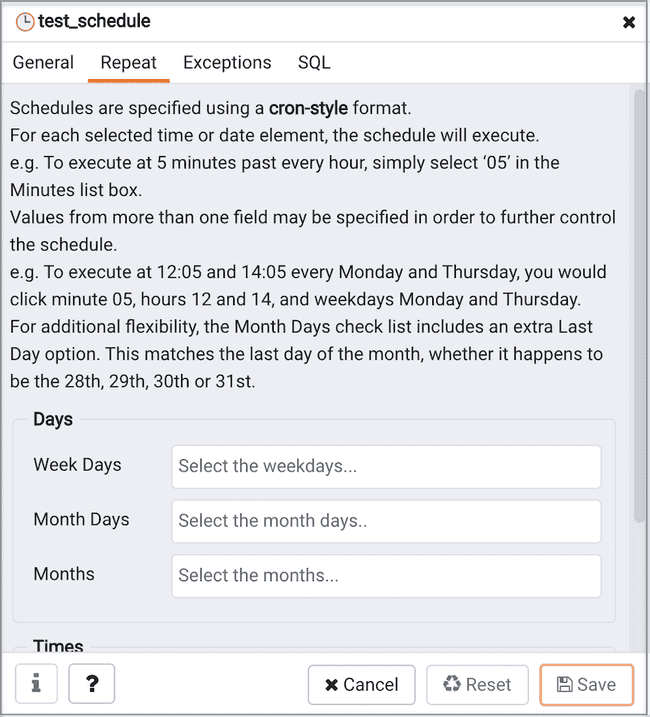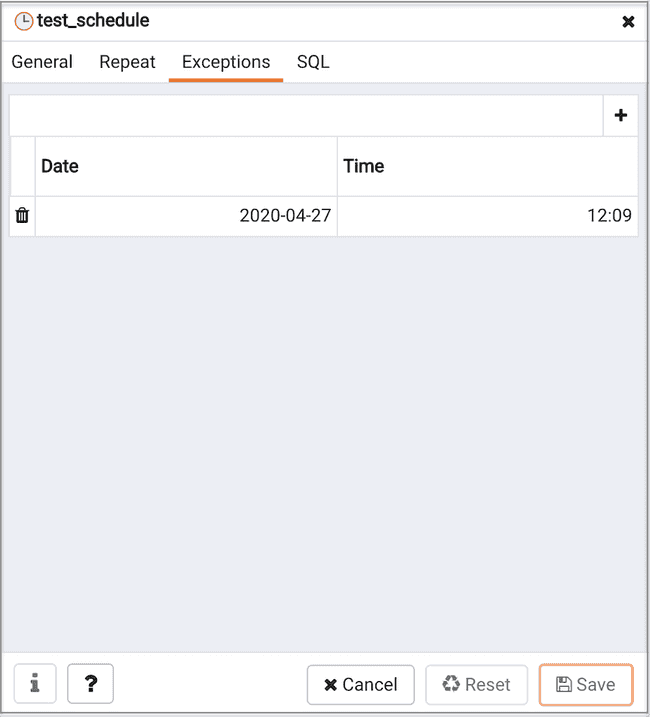pgAgent Schedules v9
Each Job is executed according to one or more schedules. Each time the job or any of its schedules are altered, the next runtime of the job is re-calculated. Each instance of pgAgent periodically polls the database for jobs with the next runtime value in the past. By polling at least once every minute, all jobs will normally start within one minute of the specified start time. If no pgAgent instance is running at the next runtime of a job, it will run as soon as pgAgent is next started, following which it will return to the normal schedule.
Schedules may be added to a job through the job properties dialogue, or added as a sub-object. The Properties tab of the main PEM client window will display details of the selected schedule.

Each schedule consists of the basic details such as a name, whether or not it is enable and a comment. In addition, a start date and time is specified (before which the schedule has no effect), and optionally an end date and time (after which the schedule has no effect).

Schedules are specified using a cron-style format. For each selected time or date element, the schedule will execute. For example, to execute at 5 minutes past every hour, simply tick '5' in the Minutes list box. Values from more than one field may be specified in order to further control the schedule. For example, to execute at 12:05 and 14:05 every Monday and Thursday, you would tick minute 5, hours 12 and 14, and weekdays Monday and Thursday. For additional flexibility, the Month Days check list includes an extra Last Day option. This matches the last day of the month, whether it happens to be the 28th, 29th, 30th or 31st. Use Timezone drop-down to select the timezone to be used in the next job run.

On occasion it may be desirable to specify an exception for a schedule - for example, you may not want a schedule to fire on a particular national holiday. To achieve this, each schedule may have a list of date and/or time exceptions attached to it. If a schedule lands on an exception, that instance will be skipped, and the following occurance will become the next runtime.
